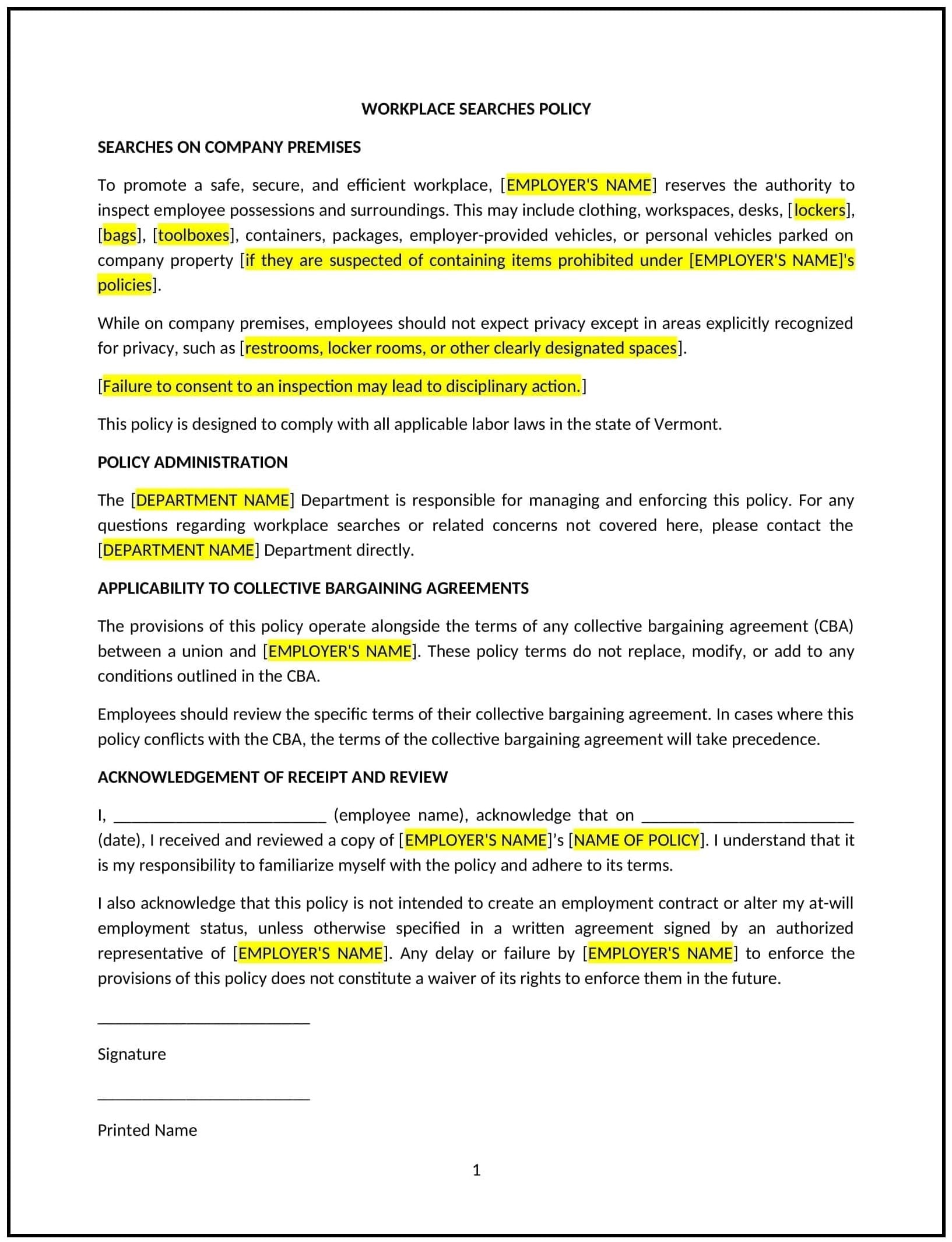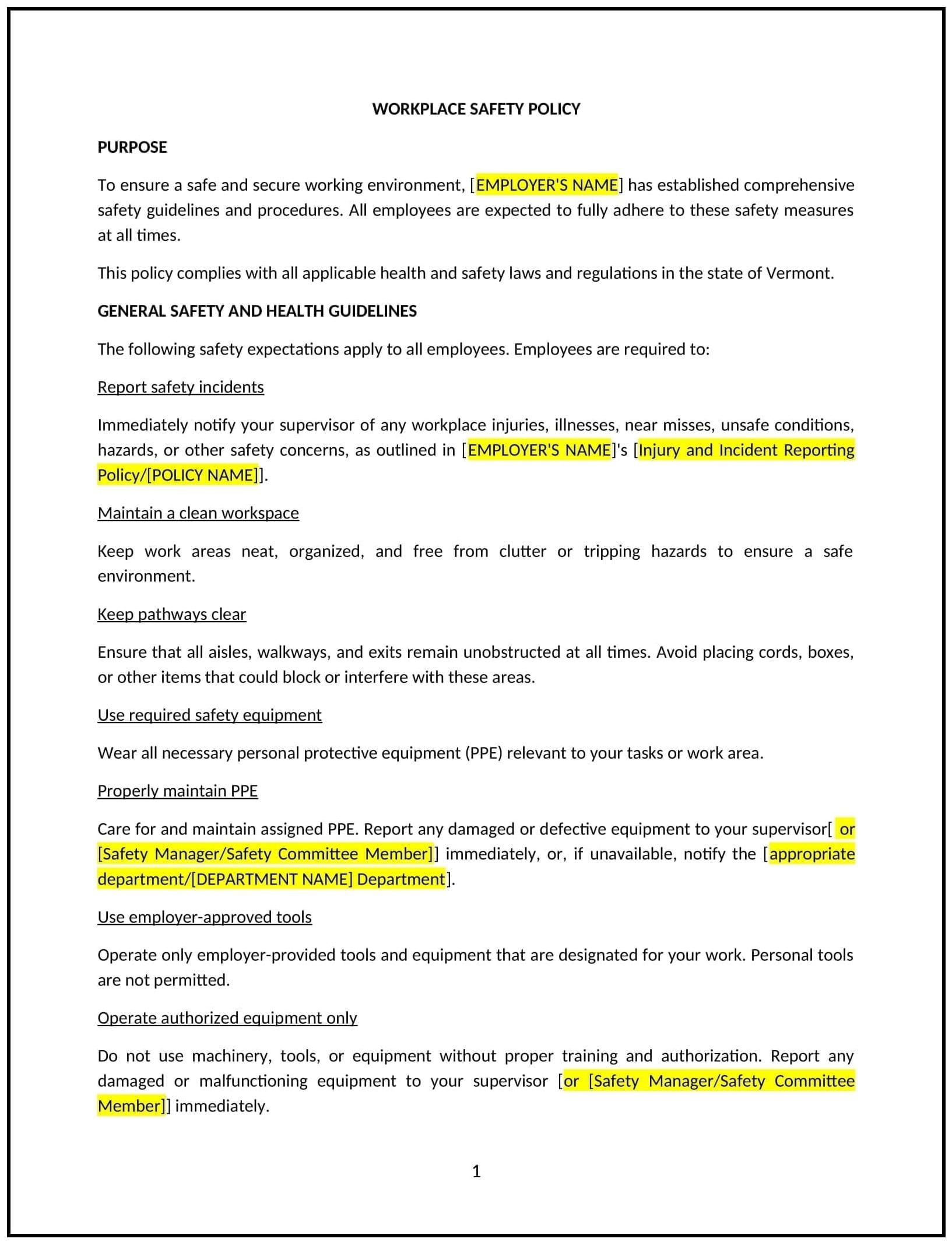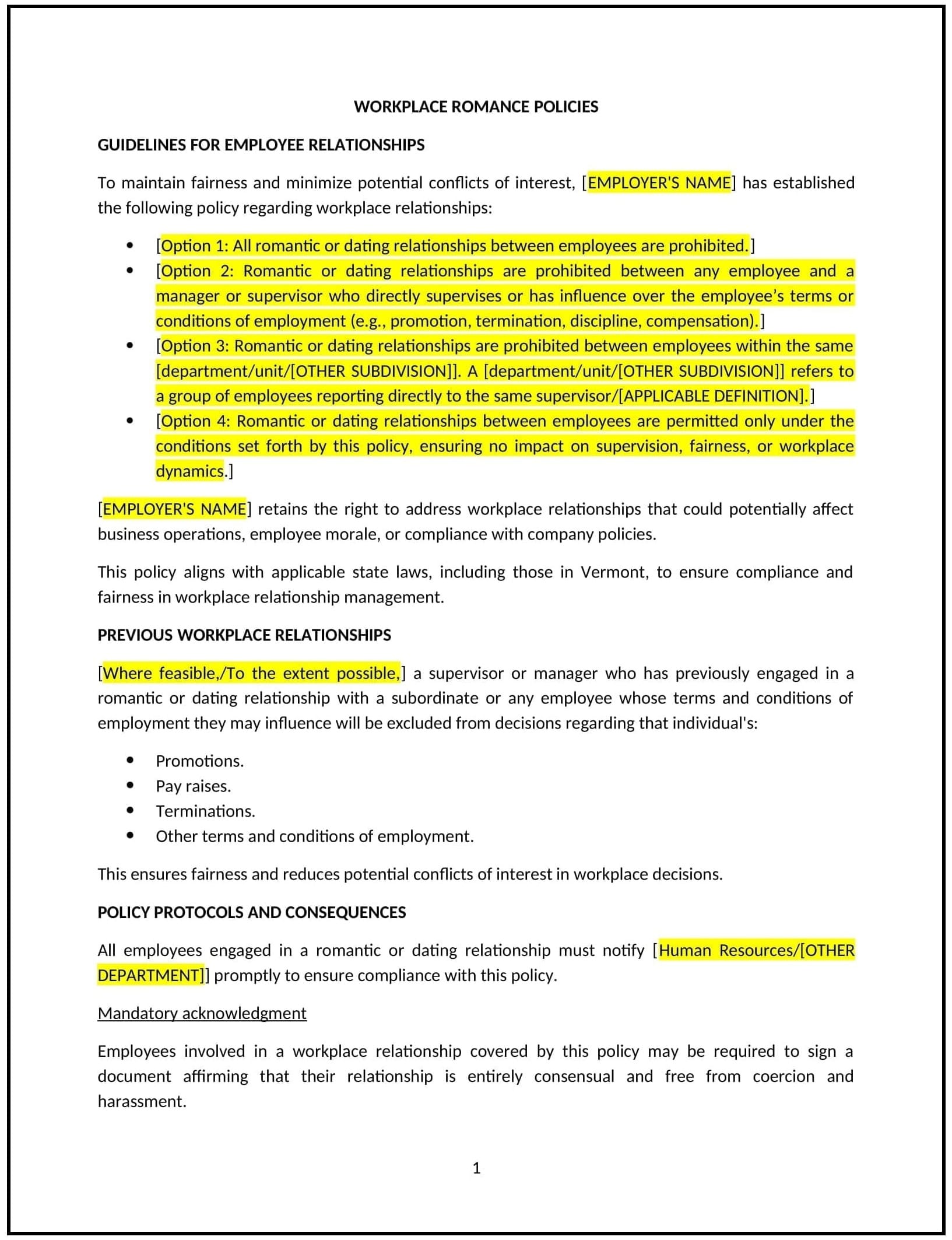Immigration sponsorship policy (Florida): Free template
Immigration sponsorship policy (Florida)
An immigration sponsorship policy helps Florida businesses establish guidelines for supporting employees or candidates who require visa sponsorship to work legally in the United States. This policy outlines procedures for evaluating sponsorship requests, managing the application process, and maintaining compliance with federal regulations. It is designed to promote fairness, reduce risks, and provide clear expectations for handling immigration-related matters.
By implementing this policy, businesses in Florida can demonstrate their commitment to attracting global talent, fostering inclusivity, and aligning with state-specific workforce needs while adhering to ethical practices.
How to use this immigration sponsorship policy (Florida)
- Define eligibility criteria: Clearly specify which roles or candidates qualify for sponsorship, such as specialized skills, experience, or educational qualifications.
- Establish request procedures: Outline how employees or candidates should submit sponsorship requests, including required documentation and timelines.
- Address evaluation criteria: Explain how businesses should assess sponsorship requests based on factors such as job requirements, business needs, and operational impact.
- Specify responsibilities: Provide guidance on the roles of HR, legal teams, and employees in managing the sponsorship process, including application timelines and costs.
- Communicate the policy: Share the policy with employees and candidates during recruitment or onboarding to ensure awareness and understanding.
- Monitor adherence: Regularly review how the policy is applied and address any concerns or discrepancies promptly.
- Update the policy: Periodically assess the policy to reflect changes in immigration laws, workforce dynamics, or business goals.
Benefits of using this immigration sponsorship policy (Florida)
This policy offers several advantages for Florida businesses:
- Promotes inclusivity: Supporting immigration sponsorship fosters a diverse and skilled workforce.
- Reduces risks: Defined procedures minimize the likelihood of errors or misunderstandings during the sponsorship process.
- Builds trust: A clear policy demonstrates the business’s commitment to fairness and ethical practices.
- Aligns with community values: Reflects Florida’s emphasis on diversity, innovation, and supporting a global workforce.
- Enhances reputation: Demonstrates the business’s dedication to attracting top talent and fostering growth.
- Improves retention: Offering sponsorship contributes to higher employee satisfaction and loyalty.
- Supports growth: A robust policy facilitates scalable solutions for managing immigration-related needs.
Tips for using this immigration sponsorship policy (Florida)
- Communicate clearly: Ensure employees and candidates understand the policy by providing written materials and discussing it during meetings or training sessions.
- Train managers: Educate supervisors on how to evaluate sponsorship requests fairly and consistently while understanding legal requirements.
- Be transparent: Clearly outline the sponsorship process, including timelines, costs, and expectations, to manage candidate and employee expectations.
- Stay informed: Keep up with changes in federal immigration laws, regulations, or policies that may affect sponsorship practices.
- Encourage feedback: Solicit input from employees and candidates to identify areas for improvement and ensure the policy meets their needs.
- Review periodically: Assess the policy’s effectiveness and make updates as needed to reflect changes in workforce dynamics or business goals.
Q: Why should Florida businesses adopt an immigration sponsorship policy?
A: Businesses should adopt this policy to promote inclusivity, attract global talent, and demonstrate their commitment to supporting employees or candidates requiring visa sponsorship.
Q: What types of visas should businesses consider sponsoring?
A: Businesses should consider sponsoring visas such as H-1B for specialty occupations, L-1 for intracompany transfers, or O-1 for individuals with extraordinary abilities, depending on the role and candidate qualifications.
Q: How should businesses evaluate sponsorship requests?
A: Businesses should assess requests based on factors such as job requirements, the candidate’s qualifications, business needs, and the potential impact on operations.
Q: Should businesses cover the costs of sponsorship?
A: Businesses should determine whether they will cover all, partial, or no costs associated with sponsorship, ensuring transparency and consistency in decision-making.
Q: How can businesses handle denied sponsorship requests?
A: Businesses should communicate decisions respectfully, providing clear reasons for denial and offering guidance on alternative options if applicable.
Q: What should businesses do if immigration laws change?
A: Businesses should stay informed about changes in immigration laws and update the policy and processes accordingly to remain aligned with legal requirements.
Q: How often should businesses review the policy?
A: Businesses should review the policy annually or whenever there are significant changes in immigration laws, workforce dynamics, or business operations.
This article contains general legal information and does not contain legal advice. Cobrief is not a law firm or a substitute for an attorney or law firm. The law is complex and changes often. For legal advice, please ask a lawyer.



